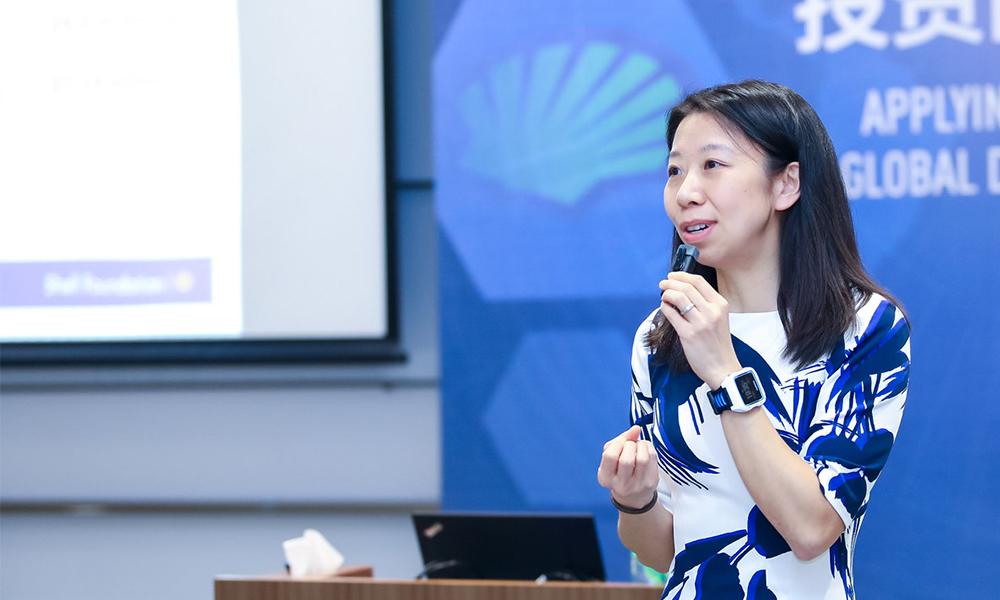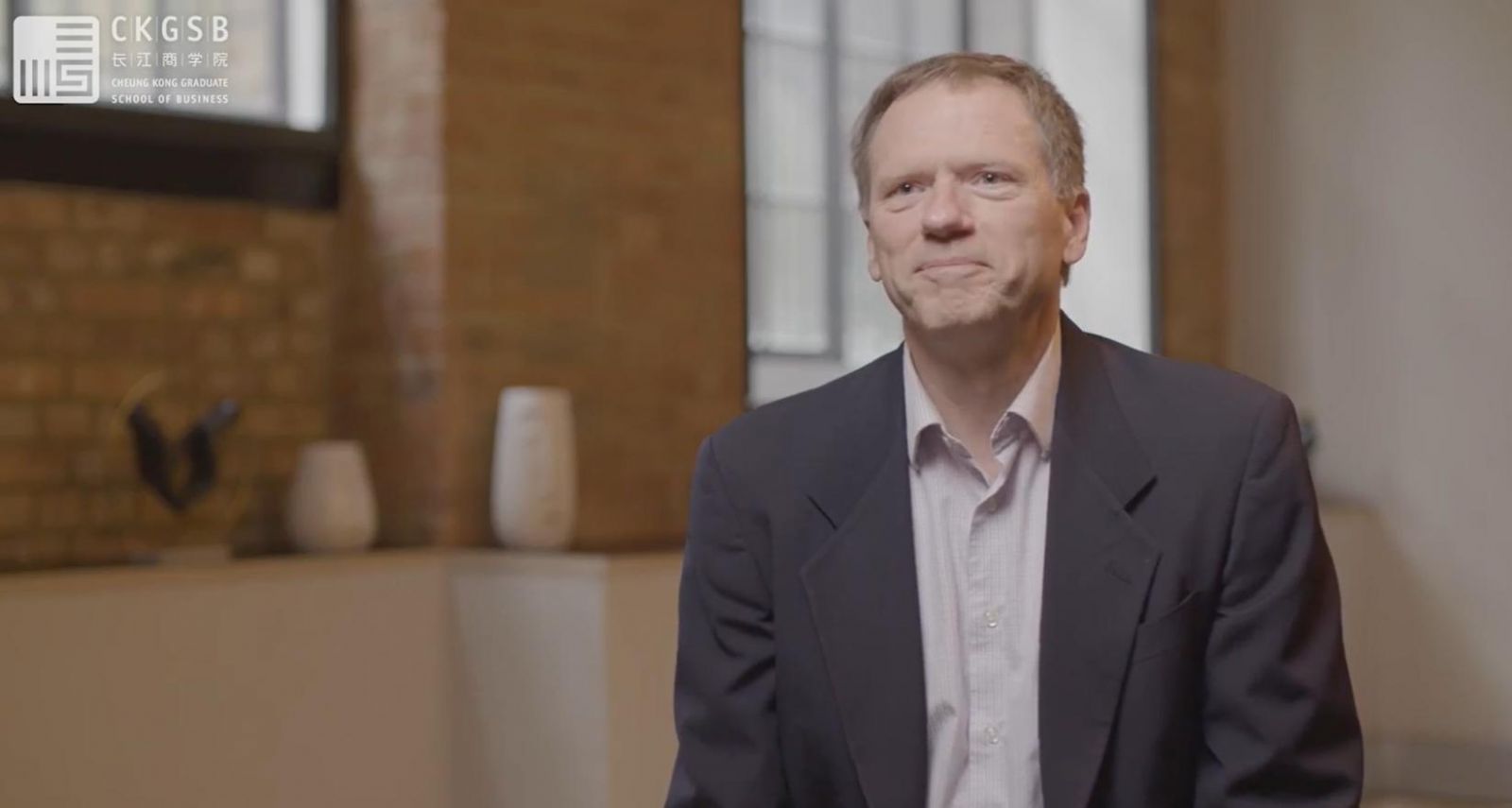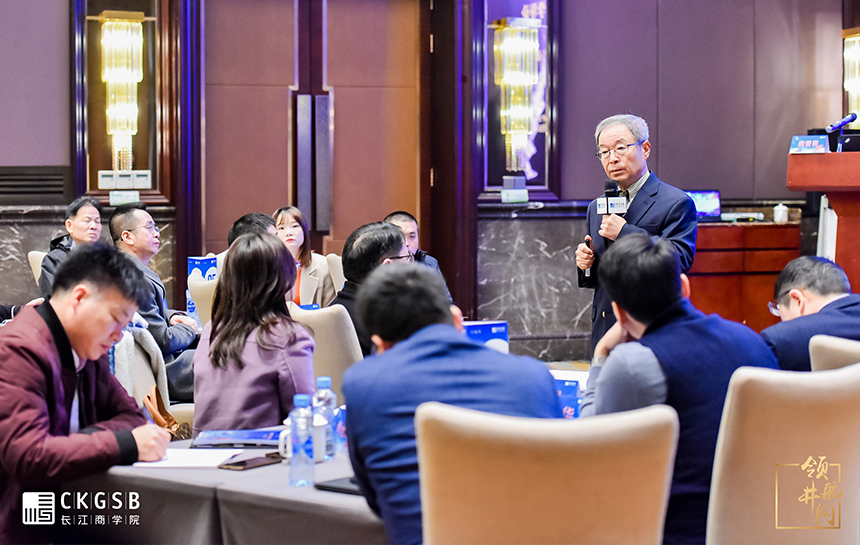An interview with Professor Zhu Rui
Having spent 15 years overseas studying and teaching at top universities, Dr. Zhu Rui (Juliet) joined Cheung Kong Graduate School of Business (CKGSB) in 2013 as a Professor of Marketing and the Director of Social Innovation and Business for Good Centre. Recently we sat down with her to talk about the trends in sustainable businesses in China, how companies can incorporate sustainability in their business strategies and why it matters.
1. Why do you think it matters that business leaders incorporate Environmental, Social and Governance (ESG) principles into their business strategies?
A: It is a strategic decision for a company to be socially responsible. Usually the head of a company plays a crucial role. Good CEOs should realize that today the public is evaluating companies based on more than stock returns and market value. Instead, a company’s performance on ESG is valued more through rankings, investors, even customers and talents. Conducting ESG may mean investing more money into operations in the beginning, but studies show that companies taking ESG into consideration actually have better financial returns. Incorporating ESG into businesses often means more innovation, which will in turn lead to growth in the long run.
2. Why do you think people are paying more attention on the topic of ESG under the impact of the COVID-19 pandemic?
A: Actually it is not surprising. Many people may wonder if companies care less about ESG as they are struggling to survive under these difficult circumstances. But in fact people are searching for ESG on search engines like Google more frequently now than ever before. This means that attention towards ESG is increasing. I think that is because in time of trouble and despair, people tend to turn more to corporations, especially leaders in these corporations, to shoulder more responsibility in solving global problems. My advice to companies is that if you take on more social responsibility in these troubling times, you will gain more respect and brand awareness from consumers and the public. People can see the true character of a company and its leaders during difficult times.
3. Can you tell us your understanding of sustainable business? Is there a framework that businesses can follow to put this idea into practice?
A: Milton Friedman, an economist and winner of the Nobel Prize of economics, claimed that a company’s sole purpose is to maximize shareholders’ value. I think that era has come and gone. Today, companies need to consider multiple stakeholders, including their employees, customers, the community and the supply chain. A sustainable business can’t have a mission or vision that benefits only itself. In order for companies to balance profits and sustainability, I came up with a three-step model on how businesses can operate for the greater good. One, companies must embrace a mission and vision that mutually benefits multiple stakeholders. They must identify their expertise and find the intersections of that expertise with social problems, and finally they must have a comprehensive governance structure to ensure that rules and mechanisms are in place to achieve their mission.
4. In your framework, how can businesses find the right type of social issues to tie into their business and leverage their strengths while being socially responsible?
A: One of the things that I share with my students is the United Nations’ Sustainable Development Goals (SDGs) for inspiration. It is useful to learn about the bigger issues facing the world, not just within China. Companies that want to emphasis business for good can take a look at these 17 goals, choose one or several goals that are closely related to their domain of expertise and incorporate them into their business strategies.
5. In your book, Companies of the Future: A Three-step Approach for Sustainable Business, you discuss how big companies such as Tencent, Huawei and Unilever are incorporating ESG into their businesses. Do you think it’s easier for big companies to incorporate ESG into their business strategies because they have stronger cash flow and more manpower compared to startup companies or small-and-medium-sized companies?
A: I don’t think so. It is a misconception that a company can only be socially responsible when it is strong or big enough. I believe regardless of the size or the stage of your company, you can always be socially responsible. Actually most companies that are certified by B-Corp are small-to-medium-sized companies. If a company incorporates social responsibility or ESG dimensions into its strategy from day one, that is their differentiation. A start-up or SME may be more flexible. For larger, established companies with mature businesses it is actually not as easy, as it is always challenging for big ships to change directions.
6. What motivates you to study sustainable Chinese businesses and publish a book on the topic of social responsibility?
A: When I resettled back in China with my family after living abroad for 15 years, I encountered some social and environmental challenges, such as food safety and air pollution. In the process of trying to solve these issues for my family, I started to ponder how I could help alleviate these problems not just for myself but for society. Most of my students at CKGSB were entrepreneurs of very influential companies. So I thought to myself why not inspire them to join the effort of solving social problems by leveraging their resources and influence. Thus, with support from the Dean and my colleagues, I designed an elective course studying Chinese companies that balanced economic benefits with social and environmental values, looking at 8 industries and more than 30 cases. This developed into a core curriculum and then became the basis for my book.
7. Can you share with us what CKGSB has been doing to incorporate social responsibility into its curriculum?
A: As a business school, we want to make sure that students leave this place with social responsibility built into everything that they do. We emphasize the importance of the humanities and social innovation in their business practices. For example, our degree program students have to complete 48-hours of community service before they graduate. I designed a course titled “Business for Good” for our EMBA students, who are primarily private business leaders, in order to leverage their expertise and solve social issues on a larger scale. In the process, their businesses become more sustainable too. This year I am reforming this course by adding a year-long practice course with the idea to encourage students to apply what they learn from my class to their own businesses in order to achieve greater sustainability.
8. What is the general picture of sustainability in Chinese businesses from your perspective?
A: After growing rapidly for nearly four decades, China has realized that it has sacrificed a lot for its economic growth. I’m very inspired to see some Chinese companies along with international companies addressing the balance between economic benefits and social impact. China is quite open to innovative ways in using technology to address social issues. For example, Tencent Game balanced its profits and social responsibilities by setting up time limits for kids under 12-years-old after noticing the negative effects of gaming on children. In the case of Delong Steel, a well-known private steel company in China, it invested heavily in upgrading and innovating its production and waste-dealing equipment. By doing so, it not only increased its production capacity, raised its brand image and lifted its product margin, but also turned its industrial park into a scenic spot, balancing its economic values with its environmental concerns. There are also other companies, big and small, joining this effort to be more sustainable. Obviously, there is a long way to go, but I think the ability to be socially innovative will be the new focus among Chinese businesses in the foreseeable future.




















